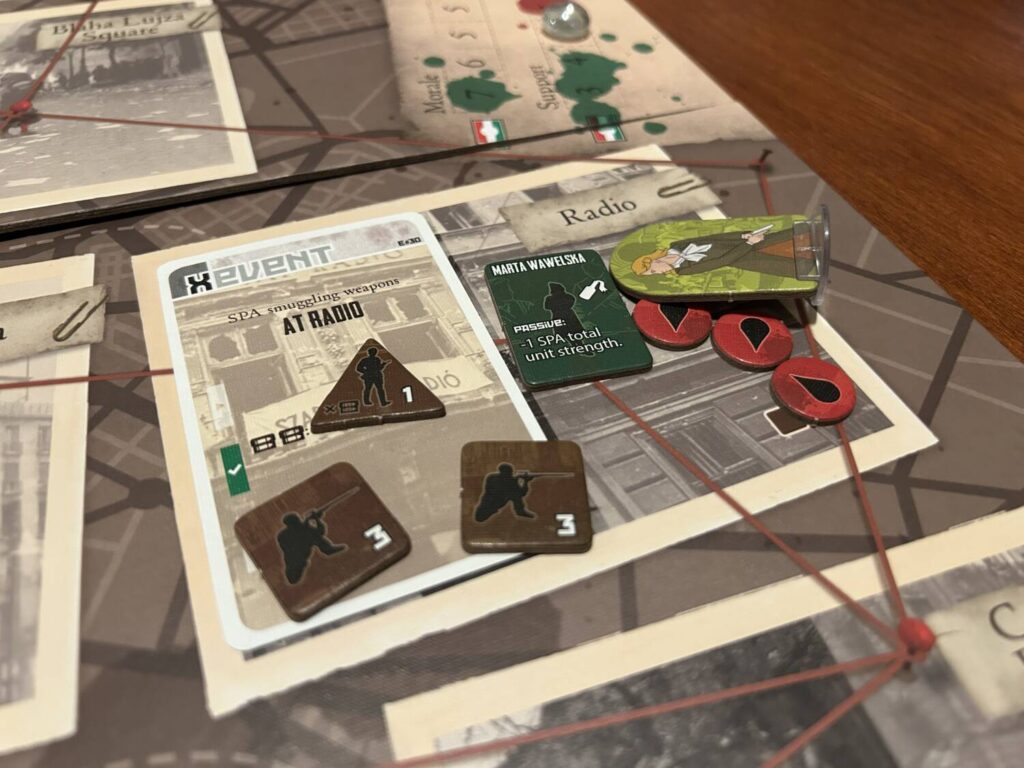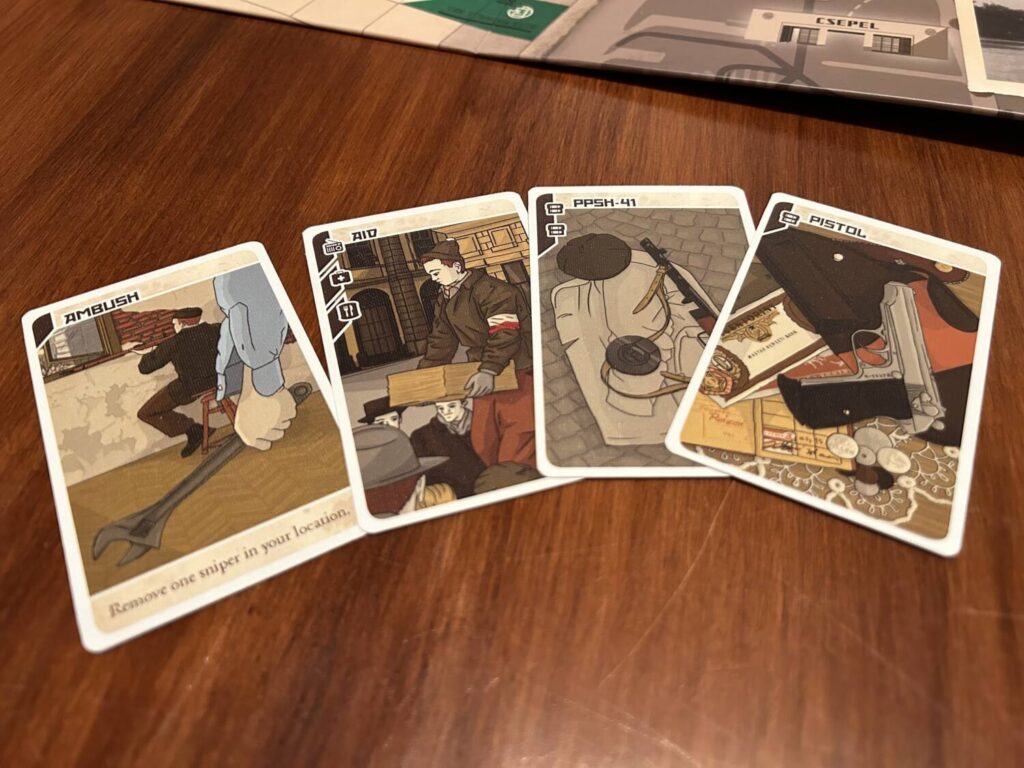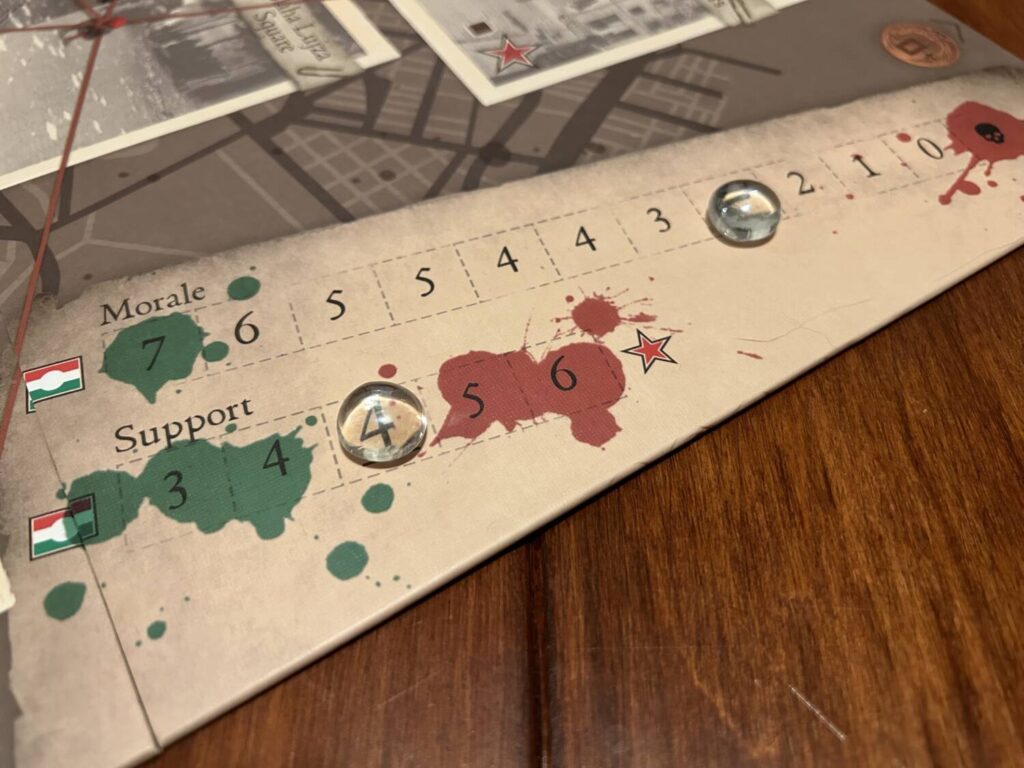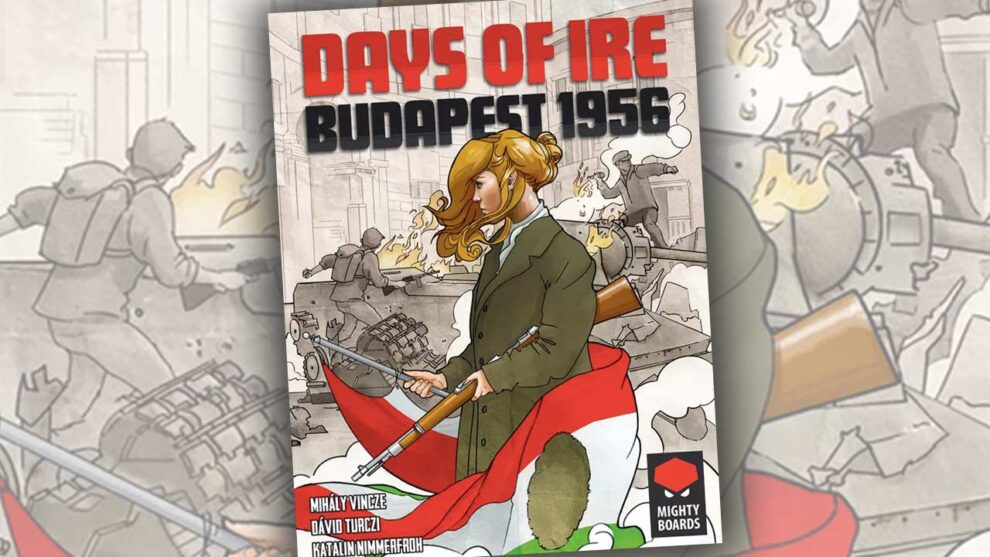Days of Ire: Budapest 1956 is a cooperative game in which one-to-four players work together during the Hungarian Revolution of 1956, when students attempted an overthrow of the ruling Communist Party. The game also includes a one-v-all mode, with one player taking on the role of the oppressor. Both play similarly, with only mild differences between them. Since most of my plays were cooperative, I’m going to default to describing that mode.
The fundamentals of the Days of Ire system aren’t too far from Pandemic, the cooperative Allfather. The board is a network of locations throughout Budapest, each filled with potential allies and enemy forces. Players take turns to execute actions with the goal of clearing events and removing Soviet forces.

Player count determines the number of actions each turn. You can move, activate fighters, resolve events, attack militia, destroy tanks, and give/take cards. Some cards have free actions, while others include resources that can be used to resolve the aforementioned events. Say, for example, that an event pops up in the Radio location which requires one Intelligence. You’d need to have either an active fighter at the location with Intelligence as an attribute, or to discard a card with the Intelligence icon from your hand.
The game plays out over the course of a single week, ending after seven rounds. If there are four or fewer events left on the board at that point, the Revolutionary players win. If there are five or more, it’s a loss for the good guys. Instant victory is possible for either side if the right conditions are met, but those are fairly unlikely to come up.

Good Not Great
I wore out on Pandemic a long time ago, but I still recognize its strengths as a design. Cooperative games in this vein have been trying for a decade now to grapple with the ways that game deals with luck. The brilliance of the Infection Deck is that, when it resets, you know the places that will come up for a while. You can plan, you can push your luck, you can develop a reasonable internal metric for risk/reward.
To me, that’s why Pandemic has held up all these years, and why no other game in the category has managed to replace it. Days of Ire is a different game from Pandemic, this is not a Five Peaks/Concordia situation, but they are clearly related, and Days of Ire never manages to make itself as compelling as the Allfather.
If you’re drawn to the theme, then Days of Ire is worth checking out. The historical background provided in the manual is extensive, and the gameplay is rock-solid. Otherwise, I think this is most noteworthy as an early entry in the catalogue of Dávid Turczi, who recently co-designed the by-all-accounts-game-of-2023 Voidfall. Days of Ire: Budapest 1956 doesn’t do anything poorly, but it doesn’t do much of anything exceptionally well, either.













Add Comment